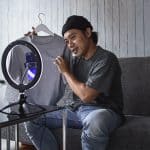In this era of high-tech innovations and a heightened global focus on health, the air we breathe indoors has never been more critical. Indoor air quality (IAQ) has a significant impact on our overall health, and there is growing evidence suggesting that efficient air filtration systems can improve respiratory health. We will delve into this topic, exploring the role of HVAC systems, the effectiveness of filters, and the importance of proper ventilation and filtration in managing indoor air pollutants. We will also discuss how these systems can help reduce the transmission of airborne infections like COVID-19.
The Importance of Indoor Air Quality on Health
Let’s start with a fundamental question: why should we care about indoor air quality? We spend a significant portion of our lives indoors, be it in our homes, workplaces, or public buildings. The quality of the air we breathe in these enclosed spaces is, therefore, a crucial factor affecting our health and wellbeing.
Lire également : Can Soil Health Be Linked to Community Nutritional Outcomes?
Air pollutants, such as dust, mold spores, allergens, and volatile organic compounds (VOCs), are commonly found in indoor environments. Long-term exposure to these pollutants can lead to various health problems, including respiratory illnesses, allergies, and even increased risk of chronic diseases like heart disease and cancer. Moreover, poor indoor air quality can exacerbate existing health conditions, particularly in individuals suffering from asthma or other respiratory ailments.
The Role of HVAC Systems in Maintaining Indoor Air Quality
HVAC systems play a vital role in managing indoor air quality. A well-maintained and effectively-functioning HVAC system helps eliminate harmful pollutants from the indoor environment, ensuring that the air you breathe is clean and healthy.
Lire également : Can Biking Trails Encourage Exercise?
A crucial part of any HVAC system is its air filter. Filters work by trapping and removing airborne particles and contaminants, thus preventing them from circulating in the building’s air. Different types of air filters offer varying levels of filtration efficiency. For instance, High Efficiency Particulate Air (HEPA) filters are known for their ability to capture 99.97% of airborne particles as small as 0.3 microns.
However, ensuring optimal indoor air quality is not merely about installing an HVAC system with a high-efficiency filter. The system itself should be properly sized to match the building’s needs, and regular maintenance is crucial to keep it operating at its best.
Improving Air Filtration for Enhanced Health Benefits
While HVAC systems are instrumental in controlling indoor air quality, not all systems are created equal. Enhanced air filtration systems that incorporate advanced technologies can offer superior air purification capabilities, translating into improved health outcomes.
For example, systems that employ HEPA filters can remove nearly all airborne particles, including those small enough to infiltrate the respiratory system. Some modern filtration systems also incorporate technologies such as ultraviolet (UV) light to kill or deactivate airborne pathogens like bacteria and viruses.
Enhanced air filtration systems can be especially beneficial in high-risk environments, such as hospitals or care homes, where vulnerable individuals are at increased risk of respiratory infections. Research indicates that improved filtration can significantly reduce the transmission of airborne infections in these settings.
Ventilation and Filtration: The Twin Pillars of Indoor Air Quality
Ventilation and filtration are the twin pillars of maintaining good indoor air quality. While filtration removes pollutants from the indoor air, ventilation ensures the continuous supply of fresh air and the removal of stale, polluted air.
Proper ventilation in a building can dilute indoor air pollutants and reduce their concentrations to safer levels. It also helps control humidity levels, which, if too high, can promote the growth of mold and other harmful biological pollutants.
When combined with enhanced air filtration, effective ventilation can significantly improve indoor air quality, thereby promoting respiratory health. For example, a study conducted in U.S. schools found that improved ventilation and filtration led to a reduction in asthma symptoms among students.
Can Enhanced Air Filtration Systems Protect Against COVID-19?
The global COVID-19 pandemic has brought into focus the role of indoor air quality in preventing the spread of airborne infections. COVID-19 is primarily transmitted through respiratory droplets, which can remain suspended in the air in enclosed spaces. As such, there is growing interest in how air filtration systems can help limit the spread of the virus.
Research suggests that enhanced air filtration systems, particularly those that incorporate HEPA filters or UV light, can effectively capture or inactivate the SARS-CoV-2 virus that causes COVID-19. This can significantly reduce the risk of transmission in indoor settings, especially when combined with other preventive measures like social distancing and mask-wearing.
While it’s important to note that air filtration systems alone cannot completely eliminate the risk of COVID-19 transmission, they can be a potent tool in our arsenal to fight against this and future airborne diseases.
In the end, it’s clear that enhanced air filtration systems in buildings have the potential to improve respiratory health by improving indoor air quality. Investing in high-quality HVAC systems, incorporating advanced filters, and ensuring proper ventilation are sound strategies to create healthier indoor environments. While the upfront costs of such systems may be higher, the long-term health benefits they offer make them a worthy investment.
The Future of Air Filtration Systems
As we move further into this new era of heightened health-consciousness, more advancements are expected in the field of air filtration technology. The future of air filtration systems holds promising potentials in providing a more breathable indoor environment. Building developers and homeowners alike are more aware now than ever about the vital role these systems play in maintaining good health and mitigating the spread of airborne diseases.
So, what could this future look like? Well, continuous innovation will likely lead to the development of more efficient filters capable of trapping even smaller particles. We might see widespread adoption of smart air filtration systems that can monitor air quality in real-time and adjust filtration rates accordingly. These systems could also alert users when filters need to be replaced or when pollutant levels exceed safe limits.
Moreover, we can expect a rise in the integration of renewable energy sources to power these systems, further contributing to the sustainability efforts. Also, it is foreseen that the use of nanotechnology in air filters would become more prevalent. Nanofilters, with their ability to capture ultra-fine particles, can offer superior filtration efficiency. Furthermore, these systems could feature advanced pathogen-killing mechanisms, such as enhanced UV light or cold plasma technology, capable of destroying a wider range of harmful microorganisms.
In all, the future of air filtration systems is set to be an exciting blend of cutting-edge technologies aimed at delivering the cleanest possible air in our indoor environments.
Conclusion
To sum up, the importance of indoor air quality on respiratory health cannot be overstated. As we spend much of our lives in enclosed spaces, the air we breathe in these environments significantly impacts our health. Harmful airborne pollutants, if not properly controlled, can lead to severe health issues, including respiratory diseases.
Enhanced air filtration systems, particularly those equipped with advanced filters like HEPA and technologies such as UV light, can effectively remove these pollutants and pathogens from indoor air. They can improve health outcomes, reduce the transmission of airborne infections, and provide an added layer of protection against diseases like COVID-19.
However, it’s crucial to remember that air filtration is only part of the solution. Proper ventilation is equally important in maintaining good indoor air quality. A combination of effective ventilation and advanced air filtration is the key to creating healthier indoor environments.
The future holds exciting possibilities in the field of air filtration technologies. As we continue to innovate and improve, we move closer to a world where everyone can breathe clean, healthy air indoors. However, it is our responsibility to invest in these systems and prioritize our health and the health of future generations. After all, breathing clean air should not be a luxury, but a fundamental right.











